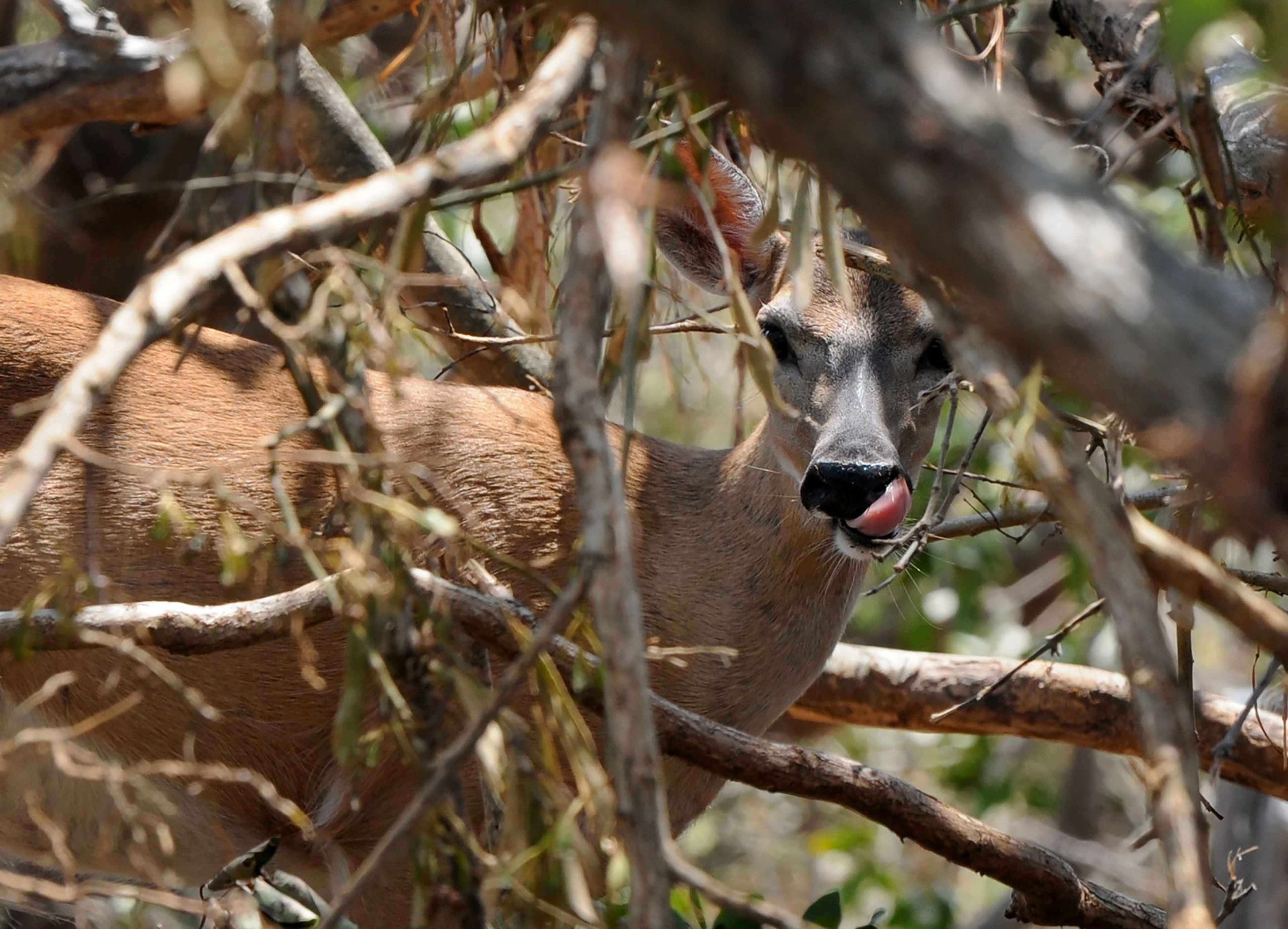Woman sentenced for killing endangered deer in Florida Keys
Senior says she killed suffering ungulate to put it out of its misery; gets probation, fine
A woman who was facing a year in federal prison for what local environmentalists said was the mercy killing of a suffering endangered Key deer in November instead was sentenced to a year of probation and fined $4,000 this week.
Wendy Kilheffer, 77, of Big Pine Key, Fla., will also have to work 100 hours of community service, according to a statement from the U.S. Attorney’s Office. She pleaded guilty in January and her sentencing was March 30 in Key West.
She shot the deer in the head on Nov. 16 in Big Pine Key.
Valerie Preziosi, president of the environmental group Save Our Key Deer, issued a statement at the time of Kilheffer’s arrest saying that the animal had been suffering for seven days after incurring injuries caused by being trapped in between two fences and having rope entangled in its antlers.
Both sides of the deer’s body were cut because of the repeated thrashing between the fences. A local resident was able to free it from the fences, but not get the rope off its antlers, Preziosi said at the time.
Locals and U.S. Fish and Wildlife agents tried to find the deer for the next few days. When they finally found it, it was lying on the ground and in distress.
“The buck drank some water, got up, but then collapsed on the street,” Preziosi said.
The people at the scene called the Florida Fish and Wildlife Conservation Commission’s Key deer hotline, Preziosi said, but could not immediately raise anyone.
Meanwhile, locals moved the deer to a shaded area on a private property.
“The severely suffering deer was having trouble breathing and, from descriptions by people at the scene, was likely suffering from organ failure caused by ‘capture myopathy’ — a condition induced by severe stress he experienced in the past days,” Preziosi said.
The U.S. Attorney’s Office said Kilheffer lacked the credentials or training to make the decision to kill the deer.
“Kilheffer went to her vehicle, secured a high caliber handgun, shot the deer in the head at close range, and killed it,” the statement reads. “According to witnesses, the deer’s death was not immediate. When law enforcement later questioned Kilheffer, she denied even being at the scene. Video surveillance and eyewitness statements refuted her lie.”
Key deer are a species of small white-tail deer unique to the Lower Keys and protected under the U.S. Endangered Species Act.
Kilheffer’s attorney David Paul Horan said federal prosecutors pressured his client into pleading guilty in the case.
“The pre-sentencing investigation included downloading Wendy’s phone and using her emails to threaten her friends and neighbors with $100,000 fines and jail time,” Horan said in an email to the Herald.
He added that the community’s relationship with the National Key Deer Refuge, the federal entity that regulates the Key deer’s habitat in the Lower Keys, “was detrimentally impacted by Wendy’s prosecution.”









